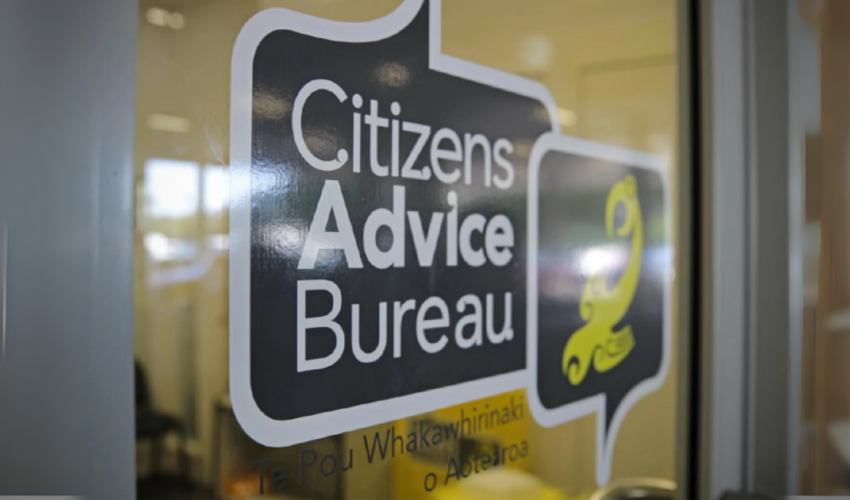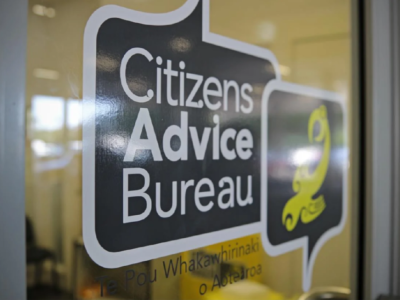Learn » Blog » Opinion: Boosting Citizens Advice Bureau - the best investment of all?
Opinion: Boosting Citizens Advice Bureau - the best investment of all?
Published on 26/06/2025
Topics:
media

By Sam Stubbs. Originally published in The Post.
Not a lot of people would describe New Zealand as a volunteer nation. Yet we are. From rugby and netball coaches, to thrift shop workers and hospice carers, many thousands of Kiwis turn up every day to do the right thing.
And the numbers are truly impressive. One 2021 survey estimated the charity sector alone employs around 145,000 people, with another 230,000 volunteers working with them. And many others have jobs paying lower salaries and wages for the love of giving back. Nurses, teachers and police officers immediately spring to mind.
However, one problem with all this giving is the tendency of big institutions, and particularly the Government, to take them for granted. Take the Citizens Advice Bureau. I consider it one of New Zealand’s hero organisations. It has 2000 volunteers providing advice in 80 locations around New Zealand. In 2024 they conducted over 94,000 face to face meetings, took 110,000 phone calls, wrote 14,000 emails and had 2500 online chats.
Its heavy emphasis on in person meetings and phone calls shows that they are dealing primarily with people who don’t want to, or can’t, communicate electronically. But in contrast, the Government wants us to access its services electronically, in order to save taxpayers money. This is clearly fine for many of us, but annoying for others, especially older people.
And banks have been keen to increase profits by closing branches and making their customers interact online. Worryingly, the Citizens Advice Bureau have reported getting bank KiwiSaver members enquiring about hardship claims through them, which the banks should be fully staffed to deal with themselves.
Both the Government and banks sending more people to the Citizens Advice Bureau would be fine, if there was sufficient funding to help. But they are scraping through, doing more with less. The Government gave them just $1.7 million for National Operations in 2024, and some bureaus operate on an annual budget of less than $20,000. It is a minuscule amount of money for such a massive amount of help.
To put this in perspective, $1.7 million is what the Government spends on our health system every 30 minutes, or on education every 47 minutes, day and night. And to really understand how small a sum it is, the cost of only one of our new Air Force P8 surveillance aircraft - $586 million each - could fund the current government contribution to the Citizens Advice Bureau for 344 years.
$1.7 million was 90 minutes of pre tax profits for our four biggest banks last year. Could they perhaps fork out 90 minutes of profit to match the Government subsidy to the Citizens Advice Bureau, considering they refer their customers to it?
And while I don’t want to tell the Government how to sell, it would seem to me that saying in the budget ‘We have doubled our funding to the Citizens Advice Bureau for the next three years to help ensure all Kiwis get the advice they need’ would be received very positively. And in doing that, the Government would still be able to boast about increasing health funding by $16.63 billion over three years, vs the actually announced $16.68 billion.
And I suspect that the Government would get enormous bang for the taxpayers buck by funding more volunteer organisations. It would be a pittance of it’s overall spending, but would make a huge impact on all Kiwis. To their credit, one example of this has been increased funding for food banks by $15 million this year, and there is a great deal of promise in the Government announcing a $190 million Social Investment Fund.
And what should that fund support? Hopefully, only a few new ideas and fledgling organisations. Why? Because many organisations and charities are already doing great things and could reliably deliver more. Some examples - and I apologise to the many worthy causes not in this list - are Women’s Refuge, the SPCA, Hospices, Food Banks, City Missions and the myriad of charities focussed on children in need. Money given to charities like these really is a great social investment.
And while I’m at it, it is about time many large companies starting making proper charitable donations. New Zealanders are individually very generous, but corporate philanthropy is relatively woeful. The last available survey, by JB Were in 2018, estimated that only 15% of charitable donations were from businesses. I am personally in favour of businesses donating 1% of profits to charity every year. That would make a minimal impact on shareholder returns, and may indeed enhance profits if it motivates employees and management. I work for an organisation that donates 15% of revenues to charity and can vouch for how motivating it is for employees, members and stakeholders.
As New Zealand’s social fabric frays further, it is time for us celebrate, and properly fund, the organisations and charities fuelled by volunteers, providing the things that can all too easily be taken for granted. Governments, banks and businesses, please take note.


